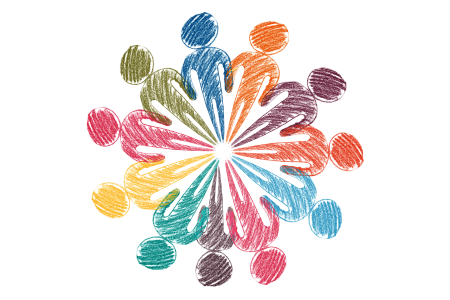Post contributed by Mark Wilson, Director of Civic Learning Initiatives, Caroline Marshall Draughon Center for the Arts & Humanities, College of Liberal Arts
In my Introduction to Community and Civic Engagement course this past semester, two students made comments that continue to echo in my mind, long after the grades were turned in and credits received. The comments stemmed from the class periods where we turn our Haley Center classroom into a circle for deliberation, one of the civic skills we develop in the course. Civic work can’t be done in rows; citizens have to sit shoulder-to-shoulder and eyeball-to-eyeball to work through difficult issues.
As a neutral moderator of our deliberations, I chose some particularly difficult issues, including mass shootings, America’s role in the world in a time of war, and bullying. Issues that require deliberation don’t have just two choices. These are complex issues, and the issue guides we use provide three options or paths we might take to make a difference, all of which are in tension with each other. So there we sit, talking through the pros and cons of the approaches, and sometimes students tell personal stories that illustrate why they are passionate about a particular aspect or challenge related to the problem.
One day, as I directed students to “circle up,” one student, with her head back and her arms dangling to the side, exclaimed, “Aghgh. This class is so emotional!” She wasn’t protesting the activity, at least not for long, but she named one important reason why citizens are reluctant to build community across lines of comfort: Community building and decision making is more than critical thinking; critical feeling is required.
On another occasion, one student, reflecting on this community practice of deliberation, commented that while he enjoyed our classroom work sessions on issues, he could not imagine his hometown participating in a similar exercise. “From where I’m from, people are so certain they understand the problem and the answer,” he said, “They can’t imagine listening to understand a perspective other than their own.” He’s right, though I hope, for all of our sakes, he’s not completely right.
These two students put their finger on two important challenges to community building: 1) The willingness of community builders to put their whole selves out there, people who can think and feel critically; 2) The existence of communities where difference is not denigrated but explored, where listening is used to understand, not destroy. The first challenge might solve the second challenge, and when success is found, we will echo the ancient Greeks who called deliberation, “The talk we use to teach ourselves before we act.”




